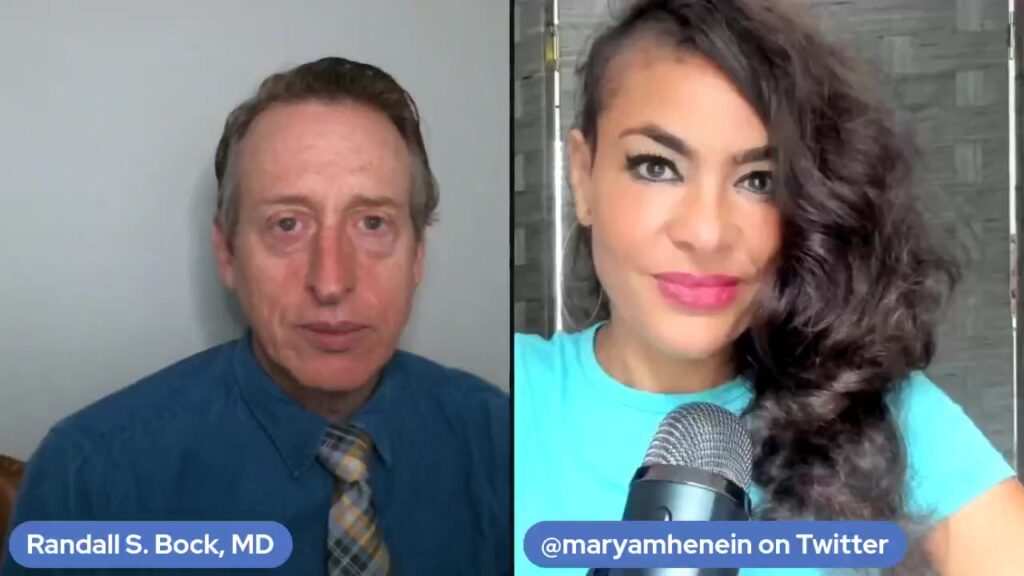Unraveling a Discussion on Health, Vaccines, and Pandemics
Introduction
Have you ever wondered about the intricate web of health, vaccines, pandemics, and the societal responses that tie them all together? Maryam Henein, a prominent voice in health journalism, sat down with Dr. Randy Bock to delve into these very topics. This article is your gateway to the insightful conversation between the two, exploring bold perspectives that challenge conventional wisdom and push the boundaries of our understanding.
Table of Contents
The Misuse of Pandemics
In our world today, pandemics are not just about health; they can sometimes be used for agendas that don’t align with public health goals. Dr. Bock raises a thought-provoking concern. He highlights the extensive use of lockdowns, a measure never widely adopted in public health before. These extraordinary times have made us question the norms we once took for granted.
Imagine a game of chess, where every move has consequences. Pandemics are no different. The conversation unravels the complex moves and counter-moves made on the global health chessboard.
Vaccine Considerations
Vaccines – those tiny vials of hope that have the power to protect us against deadly diseases. Dr. Bock, a seasoned medical practitioner, stresses the significance of tailoring vaccines to specific situations. One size does not fit all. Informed decisions about our health are vital, but how often do we stop and think about what goes into those syringes?
The vaccine discussion is like choosing the right tool for the job. You wouldn’t use a hammer to fix a leaky faucet, right? Tailoring vaccines is akin to selecting the perfect tool to ensure the job gets done right.
Zika and Vaccines
Zika, a name that struck fear into the hearts of many. The conversation touches upon this virus and the development of mRNA vaccines. It becomes clear that the response to Zika was disproportionate, mirroring the reaction to the coronavirus pandemic. What lessons can we draw from this? Sometimes, fear can lead to hasty decisions.
Think of it like this: When you’re driving in the rain, you don’t slam on the brakes at the first raindrop. Similarly, measured responses are often more effective than panicking.
Historical Perspectives on Public Health
Dr. Bock takes us on a journey through the annals of public health history. Quarantine, a term that’s been thrown around quite a bit lately, isn’t always the best approach. The conversation reveals that maintaining cleanliness and hygiene can work wonders. It’s not rocket science, but rather a return to the basics of good health. Clean water, better housing, and reduced pollution – these are the unsung heroes of public health improvement.
Picture a garden. To make it flourish, you don’t just need good seeds; you need the right soil, sunlight, and water. Public health is no different. It thrives with the right conditions.
Conclusion
In this enlightening conversation, we’ve discovered the need for tailored approaches in public health, the potential misuse of pandemics for various agendas, and the importance of individuals taking charge of their health decisions. It’s not just about listening to the experts; it’s about asking questions and making informed choices.
FAQs
No, historical perspectives show that maintaining cleanliness and hygiene can be effective.
Dr. Bock suggests tailoring vaccines to specific situations.
The Zika response, similar to the coronavirus response, was disproportionate.
Factors like clean water, better housing, and reduced pollution have historically improved public health.
Tailored approaches, informed decision-making, and skepticism of broad mandates are essential in public health.
In a world filled with health uncertainties, Maryam Henein and Dr. Randy Bock’s discussion offers clarity and empowers us to make better choices for our well-being. It’s a reminder that public health is not a one-size-fits-all endeavor; it’s a dynamic and evolving field that requires us to question, adapt, and strive for a healthier future.
